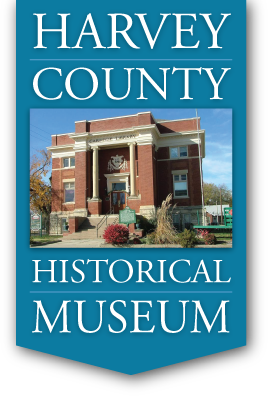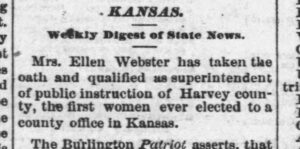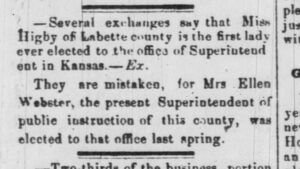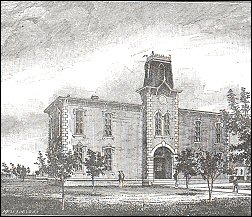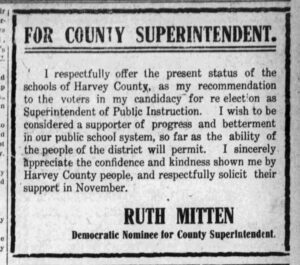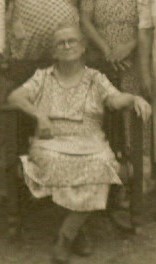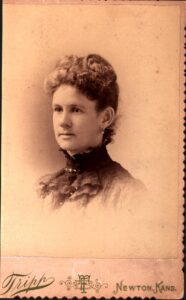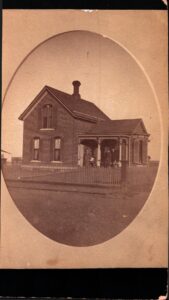by Kristine Schmucker, HCHM Archivist/Curator
Harvey County has the distinction of electing the first woman to be superintendent of schools in Kansas. In an earlier article, Ruth Mitten was featured as an early Harvey County Superintendent and educator, but she was not the first woman elected to be superintendent of schools. That honor goes to Mrs. Ellen Webster.
In June 1872, Mrs. Ellen Webster was elected and according to the State Record the first woman elected to as a superintendent of schools and to county office in Kansas.
As the first woman, there was some push back. The other person running filed a complaint “that she was not eligible on account of her sex.” A trial was set for July 9, 1872, “but her contestant failed to put in an appearance.” Mrs. Webster’s counsel, Col. Wood of Chase County, noted that the other party did not show because “the fellow was ashamed of himself” for bringing the case. (Chase County Leader 19 July 1872)
Unfortunately, her time as superintendent was marred by bad decisions made under the influence of her brother, O.M. Millard. Little else is known about Ellen Webster beyond her election and the influence of her brother. Who was O.M. Millard? Not much is known about him either. Like his sister, he appears in Harvey County history for a brief time, makes an impression and then fades away.
“A Few Questions of O.M. Millard”
O.M. Millard was elected justice of the peace in 1872-1873. Prior to the election there were many questions about his character with hints about his influence on his sister.
In an October 24, 1872, letter to the editor, Lakin Township residents who knew him best noted that he had “announced himself for Representative of Harvey county . . . we will ask a few questions of O.M. Millard.”
The writers of the letter noted several areas of concern including the observation that he was more concerned about who would pay him the most. Bribery was also mentioned. The residents noted that he dismissed a criminal case “under the Texas cattle law, against a man who was driving a drove of wild cattle through, without calling a jury as the law requires, for the pitiful bribe of ten dollars” as one example.
He advised his sister, Ellen Webster, superintendent of schools, “to make charges against the county for all the days possible and had such ungodly influence over her that the county commissioners . . . were compelled to cut down her bill one-half.”
“When the Wicked are in Authority the People Mourn”
The accusations continued and included attempted rape of a young girl “who went to the house of Mrs. E. Webster during absence on an errand.” Millard was at his sister’s house alone and he threatened the girl. She reportedly “fled home like a scared fawn.” The newspaper account noted that “the villain said: ‘I will tell all the young men she is a loose character’.” The letter concluded with “save yourselves from such a calamity as the election of that man; for when the wicked are in authority the people mourn.” Signed: Many Citizens (Newton Kansan, 24 October 1872).
Millard was not elected as a Representative.
By May 1873, Millard was working to establish a Grange of the order of Patrons of Husbandry in Sedgwick County, Ks.
October 31, 1872, F.L. Faatz was on the ballot for Superintendent of Public Instruction, “well known in this vicinity as moral and upright.”
By February Mr. F. L. Faatz was the County Superintendent. O. M. Mallard continued to work with grange organization in the area. Of Mrs. Ellen Webster, the first woman Superintendent of Schools in Kansas, no more information could be found.
See also Qualified in Every Detail: Miss Ruth Mitten – Harvey County Historical Society (hchm.org)
Sources
- Newton Kansan: 17 October 1872, 28 November 1872, 6 February 1873,
- Manhattan Nationalist 12 July 1872
- Chase County Leader 19 July 1872.
- Topeka Weekly Times: 11 July 1872.
- Wichita Eagle: 1 May 1873, 17 July 1873.
